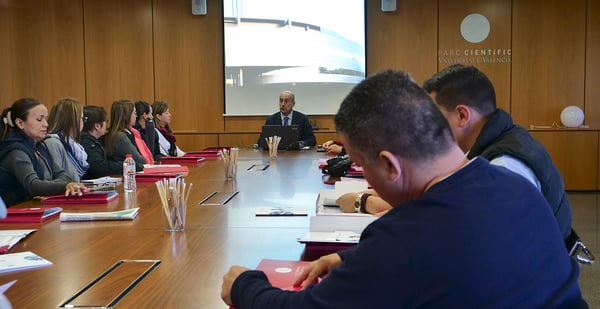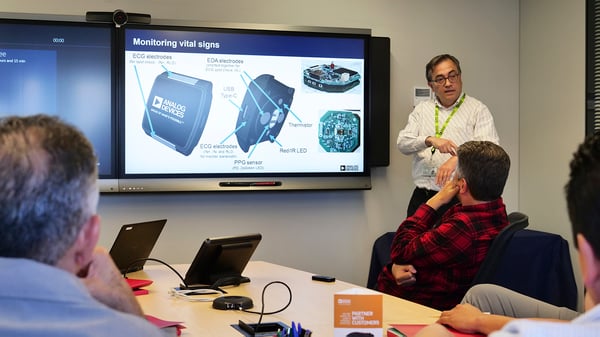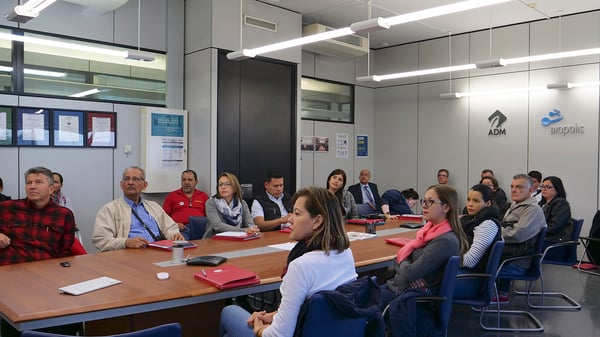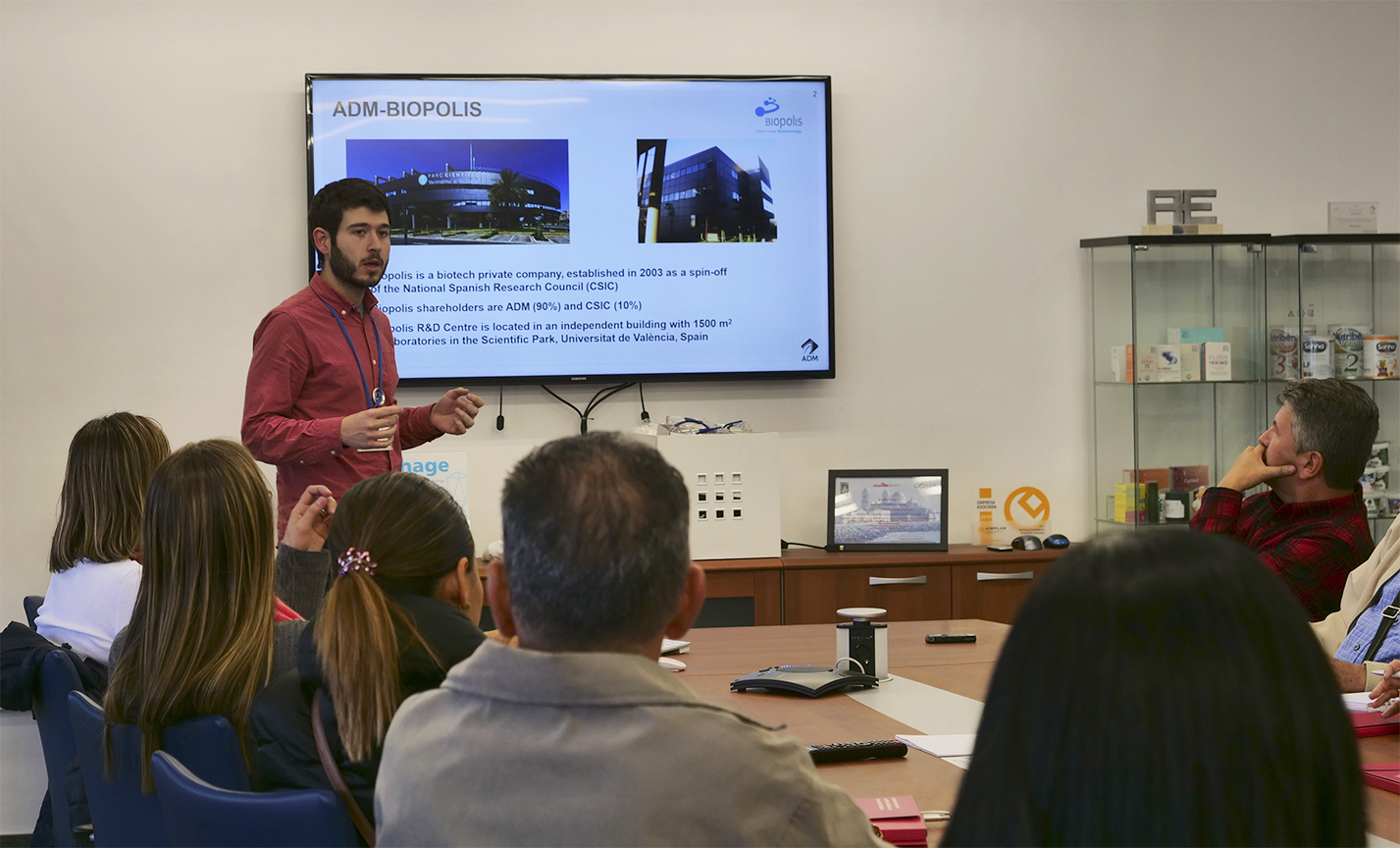Representatives from various universities in Costa Rica, mainly from the Tecnológico, visited the Science Park today, interested in knowing the profile of the companies that work in this innovation ecosystem of the University of Valencia, as well as the different ways of transfer that maintain with the 7 research institutes.
Guided by the manager of the University of Valencia Science Park Foundation (FPCUV), Fernando Mª Zárraga, they have verified how the different spaces of the corporate area of the PCUV are managed. 91 companies are currently housed, giving direct employment to almost 500 professionals.
 The manager of the FPCUV, Fernando Mª Zárraga, receives the delegation of Costa Rica in the Boardroom of the Science Park
The manager of the FPCUV, Fernando Mª Zárraga, receives the delegation of Costa Rica in the Boardroom of the Science Park
During the visit, they have also talked with Javier Calpe, head of Analog Devices Spain, "pole of innovation in microelectronics in Spain". This design center, which today has 70 experts in engineering, allocates more than a third of its sales to the industrial sector to which they provide, above all, precision measurements and monitors. In particular, "we sell to automotive industry, communications, consumption and health care," Calpe explained.
 Javier Calpe explains the developments in microelectronics of Analog Devices Spain
Javier Calpe explains the developments in microelectronics of Analog Devices Spain
They also toured the facilities of Biopolis, a company acquired by the American multinational food ADM and an innovation center in probiotics. Carles Palanca, head of Commercial Marketing, told them how the first spinoff of the Spanish National Research Council (CSIC) turned 16 years later into a company that has a production plant of 9,000 liters of capacity to produce fermented, mainly probiotics and enzymes.
 Responsible for Costa Rican universities in Biopolis
Responsible for Costa Rican universities in Biopolis
The potentialities of the PCUV
"For us it is very valuable to be located in this biotechnological hub that is the University of Valencia Science Park". For Palanca, the potential of this location lies in the transfer of knowledge "with research institutes, such as the Institute for Integrative Systems Biology (I2Sysbio) and the Institute of Agrochemistry and Food Technology (IATA) as well as with various microenterprises of the park with we have done many things together."
This visit to the Science Park is part of the specialized training that this group of Costa Ricans is receiving in the Faculty of Economics of the University directed by the Professor of Business Organization Jose Pla. It is oriented to the internationalization of the company.


